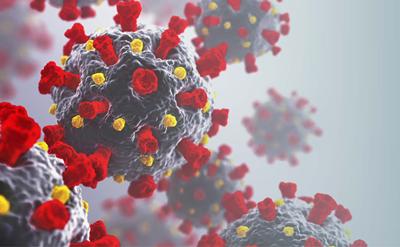One third of patients hospitalised with severe COVID-19 still have lung changes after a year

A new study has shown that most patients discharged from hospital after experiencing severe COVID-19 infection appear to return to full health, although up to a third do still have evidence of effects upon the lungs one year on.
COVID-19 has infected millions of people worldwide. People are most commonly hospitalised for COVID-19 infection when it affects the lungs – termed COVID-19 pneumonia. Whilst significant progress has been made in understanding and treating acute COVID-19 pneumonia, very little is understood about how long it takes for patients to fully recover and whether changes within the lungs persist.
In this new study, published in The Lancet Respiratory Medicine, researchers from the University of Southampton worked with collaborators in Wuhan, China, to investigate the natural history of recovery from severe COVID-19 pneumonia up to one year after hospitalisation.
83 patients were recruited after they were discharged from hospital following severe COVID-19 pneumonia and were followed up after three, six, nine and twelve months. At each time point they underwent clinical assessment as well as measures of how well the lungs function, a CT scan of their chest to take a picture of the lungs, and a walking test.
Over 12 months in most patients there was an improvement in symptoms, exercise capacity, and COVID-19 related CT changes. By 12 months the majority of patients appeared to have fully recovered although about 5% of patients still reported breathlessness. A third of patients’ measures of lung function were still reduced – in particular how efficiently oxygen is transferred in the lungs into the blood - and this was more frequently found in women than in men. In around a quarter of patients CT scans showed there were still small areas of change in the lungs, and this was more common in patients with more severe lung changes at time of hospitalisation.
Dr Mark Jones, Associate Professor in Respiratory Medicine at the University of Southampton and NIHR Southampton Biomedical Research Centre who co-led the study said, “the majority of patients with severe COVID-19 pneumonia appeared to fully recover, although for some patients this took many months. Women were more likely to have persistent reductions in lung function tests and further investigation is needed to understand if there is a sex specific difference in how patient’s recover. We also don’t yet know what happens beyond 12 months and this will need ongoing study.”
The researchers acknowledged that this study only involved a small number of patients and the findings will require confirmation in additional studies, however they have identified a number of important implications.
Dr Yihua Wang, Lecturer in Biomedical Sciences at the University of Southampton and NIHR Southampton Biomedical Research Centre who co-led the study explained, “firstly, our research provides evidence that routine respiratory follow-up of patients hospitalised with COVID-19-pneumonia is required. Secondly, given the length of time it takes for some patients to recover it suggests that research into whether exercise programmes help patients recover more quickly is required. Finally, it highlights the need for treatment strategies to prevent the development of long term COVID-19 related lung changes.”

